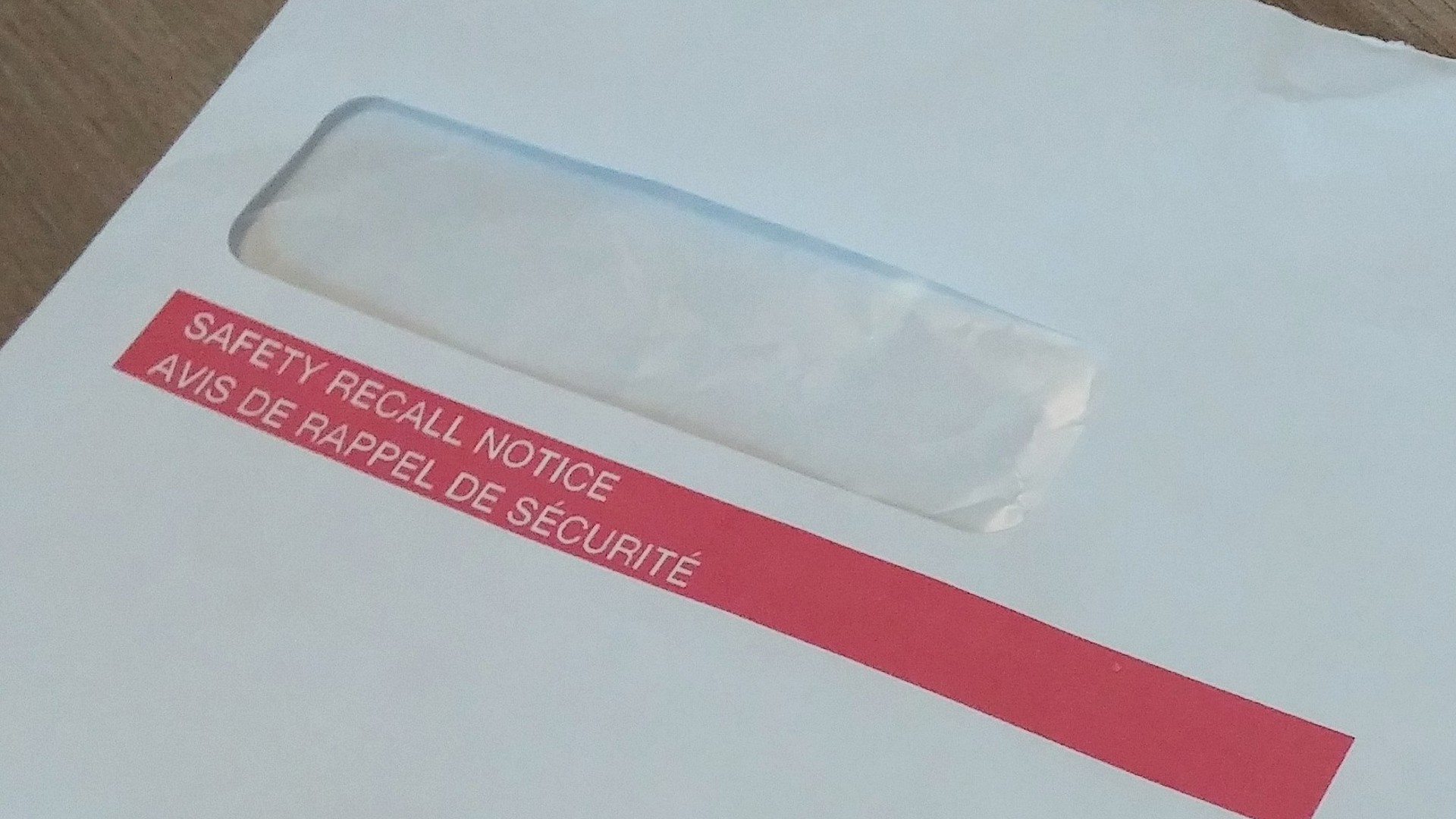Millions of vehicles on Canadian roads have at least one outstanding safety recall, with many of those concerning defects that could cause crashes and injuries or death. A new report from CBC News has found that close to 20 percent of cars and trucks could have safety recalls that haven't been completed.
The report suggests that the cause of much of the issue is that consumers aren't aware that their car had been recalled. Currently, manufacturers send letters to affected owners, but addresses change and vehicles are sold. Along with an abundance of junk mail, recall notices may not be received or may be mistakenly discarded. A Transport Canada report last week suggested that manufacturers have trouble reaching owners, especially owners of older cars that have likely traded hands multiple times.
Even when customers are aware of the recall, there can still be trouble with the availability of parts to fix the cars. The number of vehicles recalled every year has been increasing, with five million recalled in 2015 alone. That can lead to delays in getting enough parts to have issues resolved. In the US, new cars cannot be sold if there is an outstanding recall, but that's not the case in Canada, and there is no such restriction on used cars. If you have received a recall notice, but aren't sure what to do next, have a look at this primer.
Addressing the number of outstanding recalls will most likely need to come through legislation, and the Senate is currently having hearings on how to increase the power of Transport Canada to order recalls as well as fines on manufacturers for low rates of recall fixes. Despite that, further help from the provinces has been suggested by consumer advocates.
George Iny of the Automotive Protection Agency suggests a reminder tied to your vehicle registration renewal or safety inspection, telling the CBC that "we figured out ways to collect parking fines, so getting a vehicle recall shouldn't be more complicated." David Adams of the Global Automakers of Canada suggested that provinces give owners a grace period, after which they would not be able to renew their vehicle registration until the fix was made. That is a painful way to force the repair, but it could be much less painful than the potential effects of an unrepaired safety recall.

